Divinity: Original Sin 2 Review
Flexibility, choice and experimentation define this stellar sequel that manages to solve all the major problems of its predecessor
If I am being honest, I will start by saying that Divinity: Original Sin didn’t grab me in quite the same way it so obviously did many others. I saw a lot of merit to its combat, flexible quests and vibrant presentation, but thought the lack of direction, both from a narrative and gameplay standpoint, alongside some tonal issues, were sore points that kept me from really breaking into it. Several years later and Larian Studios have done just what I hoped they would, making a sequel that retains the strengths of previous game while addressing just about every issue I had with it, and then going even further with additions like full voice acting, something not generally found in the recent wave of cRPG games. Due to the relatively high difficulty and patience required it may still not be for everybody, but Divinity: Original Sin 2 is very much at the pinnacle of the sub-genre and will no doubt prove intoxicating for those who get trapped in its spell.
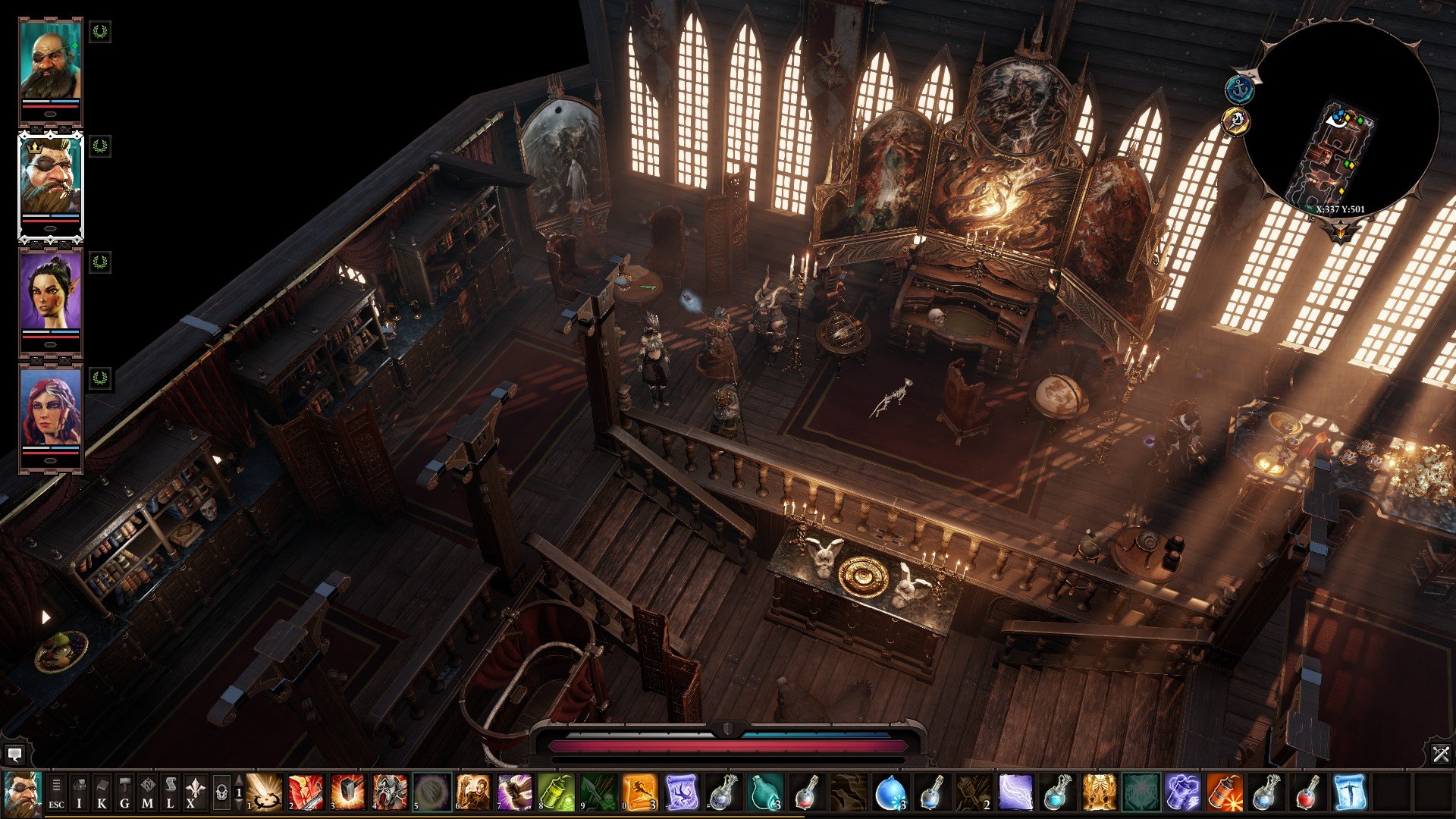
One of my biggest issues with the first Original Sin is how it started, with a nastily steep learning curve paired with a lengthy, nearly directionless, dialogue-heavy stretch of gameplay that nearly turned me off the entire game. The sequel does a much better job of bringing the player in, with an introductory sequence and first act that serve as a perfect microcosm of what the game has to offer, and sets up the world and foundation for the narrative. Centuries after the events of the previous game, you start out as a captive in a boat, yourself and the other prisoners being Sourcerers forced to wear collars that mute Sourcery. After the prologue, you end up on an Island, where you and other Sourcerers are held and eventually robbed of their powers. For the first act, which took me about 20 hours, you are simply trying to escape the island, and this proves a simple but effective motivator and does a great job of sliding you into the slow cadence of progress that players will need to embrace if they want to get the most out of the game.
As you progress further, the scope of the narrative increases, and the seemingly clear lines between good and evil begin to blur as you pursue power in a variety of ways, some of which might make you feel less than heroic. Starting the game, you can choose to play as either a pre-made character with a set origin story, or a fully customized one. Each pre-made origin character has a robust storyline that can be experienced either by playing as that character, or by recruiting them into your group. However, you must think carefully about who you play as and who you bring along, as you will be locked out of certain character storylines depending on your choices, which also adds a lot of replay value. The characters you bring along will have their own agendas, and might even demand they talk to someone before you do in relation to their unique questlines.
The slow rate of progress players will face in Original Sin 2 can be attributed to the overall design of the game, which is incredibly dense and intricate. Even on the normal difficulty setting, just about everything you do both in and out of combat will be more difficult and complex than it initially seems. As with its predecessor, the game consists of guiding a party of four adventurers through a variety of quests which typically involve exploration/puzzle solving, combat and plenty of conversations. None of these aspects are as simple as you might expect, and I suspect some new players might end up restarting due to their parties not having an effective combination of skills and abilities, though a re-spec option does become available after the first act.
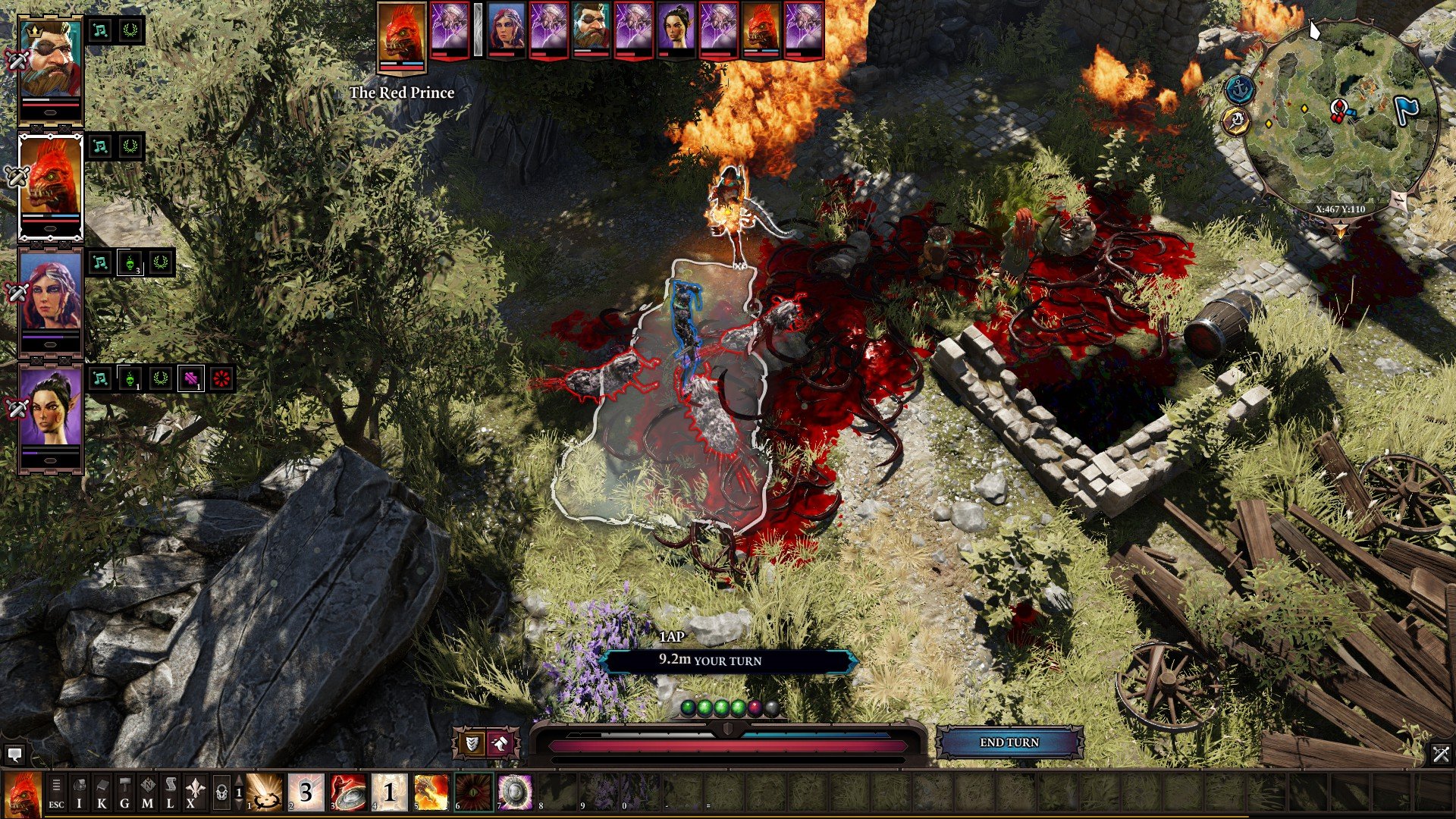
Tonally, Original Sin 2 is quite a bit darker than its predecessor. There is no shortage of racism and discrimination in Rivellon, as you will quickly discover when playing a Dwarf or Undead. Playing as a Dwarf you will need to endure a variety of slurs, while Undead characters must wear full armor or literally steal the face of a fallen enemy just to talk to most people without them running away in fear. There are some genuinely dark dialogue options and creepy moments, like encountering someone on a beach feasting on corpses, or being seduced by a putrid Witch who uses dead bodies to fertilize soil in her dwelling, moments made all the more revolting by the highly descriptive writing.
Conversations are of crucial importance, as you can learn critical information and avoid tough combat encounters if you choose the right dialogue options, and pass ‘persuasion’ events where your characters stats and history come into play. You will do a lot of talking in Original Sin 2, but fortunately the writing has seen significant improvement compared to Larian’s previous effort, and the addition of full voice acting means if you get tired of reading you can sit back and listen to the dialogue. At times, the dialogue verges on over-written, and I got the sense that some lines were meant to be read rather than spoken aloud, but generally the conversations are eloquent, engaging and significantly improved compared to the first Original Sin.
Another issue I had with the first Original Sin was the near complete lack of direction when completing quests. The sequel improves on this by placing a few waypoints on the map that represent significant locations and people, though there is still a lot you will need to figure out. Even with the waypoints, you will need to do a lot of exploring and poking around in order to figure out how to progress, but I found these to be some of the most enjoyable parts of the game. Aside from a journal that makes it a bit too difficult to track the myriad quests you pick up, the amount of guidance you have in completing said quests is just about right, since you will need to experiment and explore in order to proceed, and Original Sin 2 facilitates this kind of experimentation extremely well.
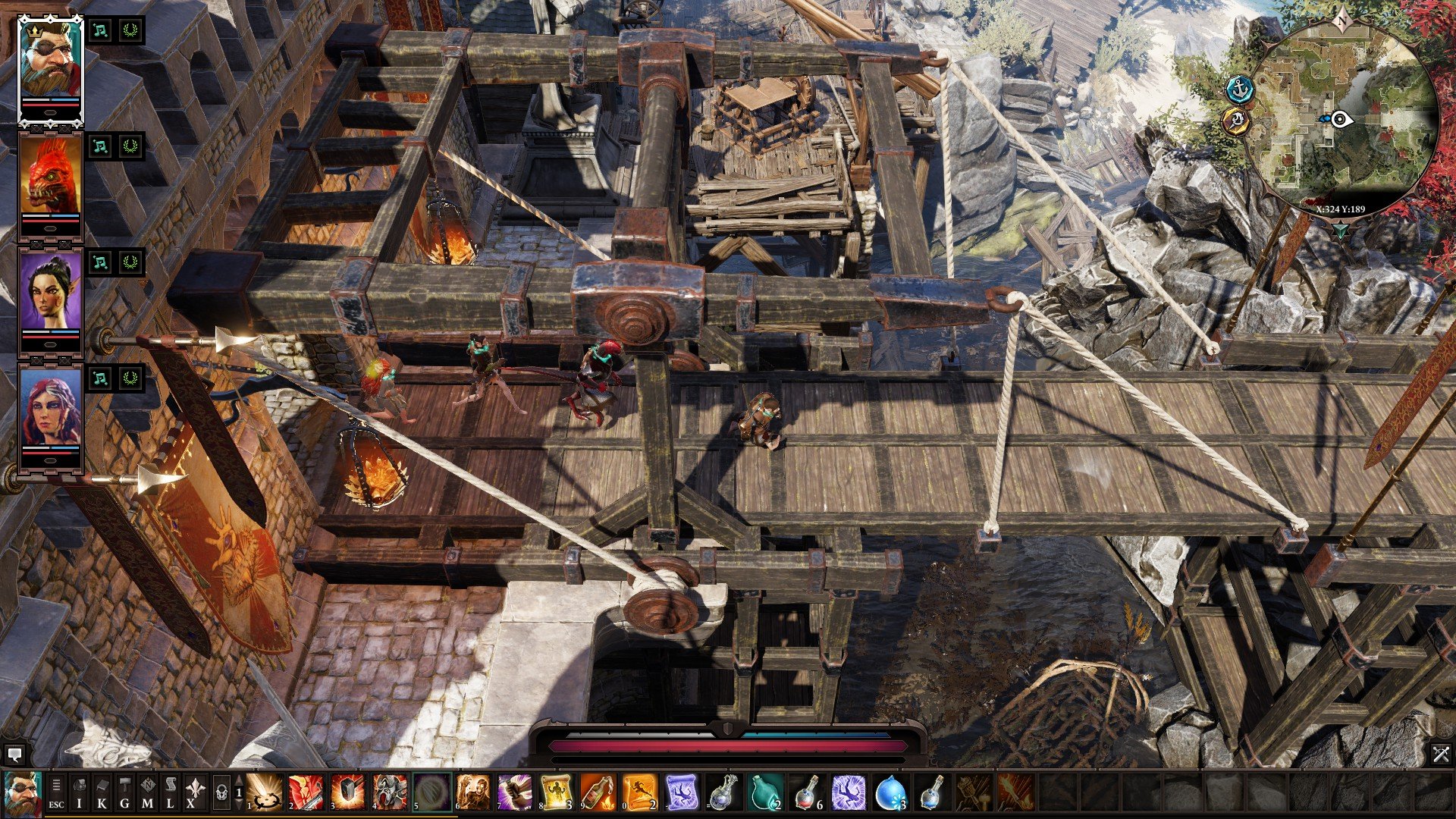
There are many ways to complete quests in Original Sin 2. My usual approach seemed to be barging into delicate situations, failing at attempting to talk my way out, then getting into some kind of fight against enemies who were several levels higher than myself. Smarter and more observant players can find clever ways to progress without bloodshed, or to pitch battles in their favor. Perhaps the most impressive thing about the game is how it adapts to the player's actions, no matter how unexpected they might be. I don’t think I saw a failure screen for the duration of my time with the game, as you can bungle a quest quite badly but things will keep on rolling and you will always be able to find other ways to move forward. Events typically play out in such a way that lends believability to the world, making it seem like a living place rather than just a playground for the user. There were a few times when I felt like I was just aimlessly wandering around hoping to stumble on the next part of a quest, but these moments are far rarer than in the first game.
At one point, I discovered I was able to talk my way past a combat encounter because I happened to have a human leg in my inventory (don’t ask). Deciding the world would be a better place without this individual, and realizing I needed all the XP I could get, I decided to dispatch him and his unsavory cohorts by means of the game’s excellent turn-based combat. This combat might have been my favorite part of the first Original Sin, and the sequel builds on it directly. Once again, fighting consists of using more traditional attacks, abilities and buffs across a variety of classes while also worrying about environmental factors that can have drastic implications on the battlefield.
Just about anywhere you get into a fight, there will be high ground and low ground, pools of water, oil or a variety of other hazards that you will need to take into account when positioning your heroes and using different spells and attacks. Water and even blood can be electrocuted, oil can be lit on fire and anyone standing nearby will take serious damage. Clouds of smoke and steam can block line of sight for archers and mages. These environmental variables can let you win against tougher enemies, or be your undoing in a fight that seemed initially easy. As you progress, you will encounter more devastating elements like necrofire which cannot be extinguished. The combat is finely balanced with a huge number of skills and spells and a ton of flexibility when it comes to character building. You are never locked into a single build type, but can make just about any hybrid of classes you can think of.
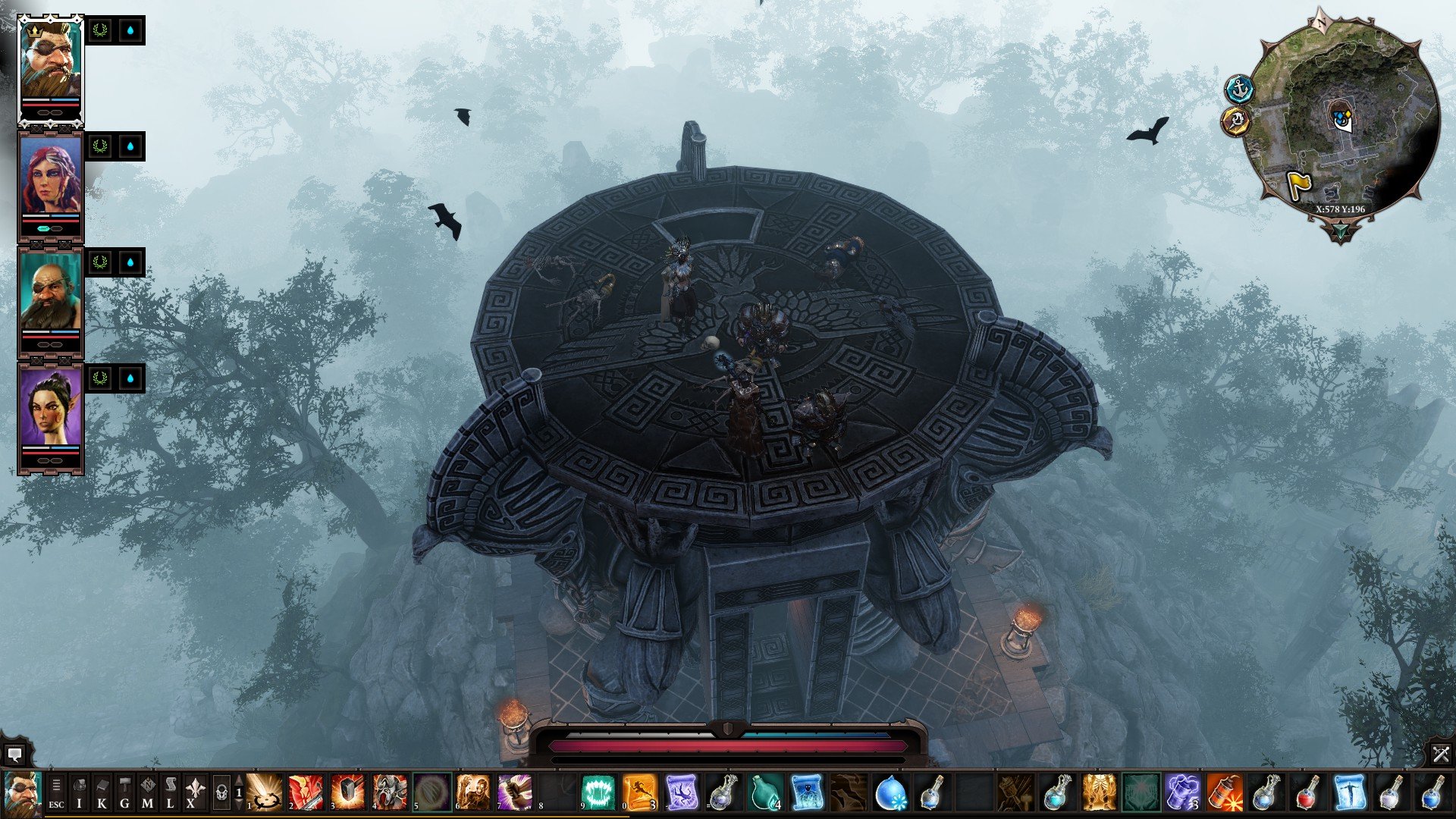
Even though Larian have seemingly solved all the biggest failings from the first Original Sin, there are a few legacy issues that can be a nuisance. Managing the inventories of your party can be a bit of a hassle, especially when it comes to trading. You can only sell and buy items for the person who is actually trading with an NPC, so before each trading session you will need to spend a few minutes shuffling items around so that everything you want to sell is on the same person. Trading itself is also finicky as you must balance the value of goods and gold by fiddling around with sliders and doing some basic math, which becomes increasingly annoying as you deal with larger sums of money as the game progresses.
Sometimes when exploring, following party members won’t follow in your footsteps even if the party formation is single file, forcing you to guide your party through tricky areas one at a time. A couple of times I even had party members take weird detours and get pulled into combat encounters I wasn’t ready for, forcing a reload. None of these issues are very serious on their own, but over the course of such a long game they can prove irksome.
Making up for some of these minor shortcomings are great extra modes and features that exist on top of the core adventure. As in the first Original Sin, you can play through the entire game in co-op, either online or now locally via splitscreen. The Game Master mode even more closely resembles the pen and paper roots of cRPGs, allowing for a D&D-like experience where one player will take on the role of game master for custom adventures that the community is surely already hard at work on. You can also take part in a bit of PvP, either in co-op games by attacking team-mates or in the Arena. These feel like meaningful extras that add even more value to this already well-priced and fully featured game.
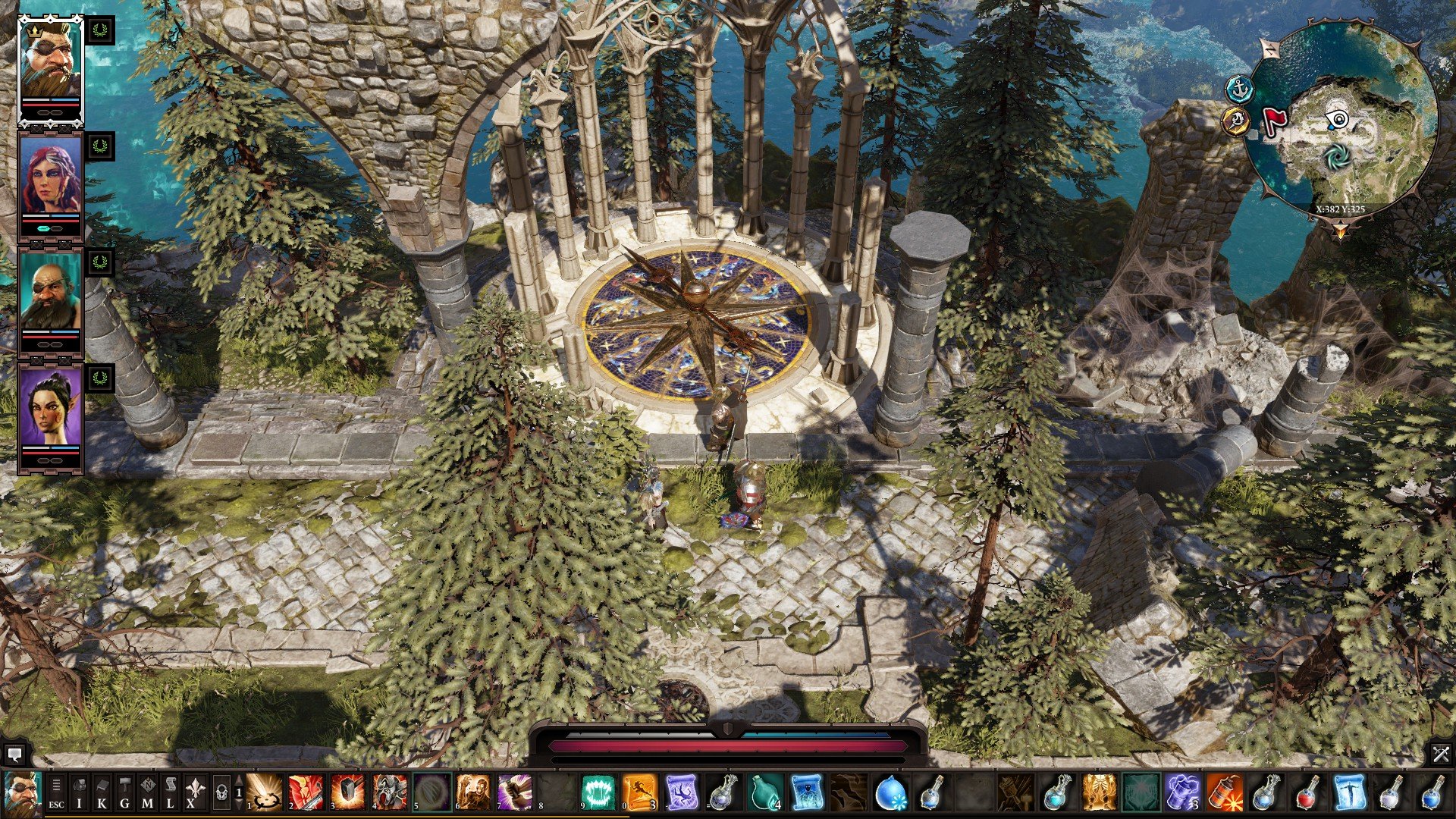
The audio-visual presentation is also on point, with detailed and vibrant visuals and great special effects accompanied by a thoroughly appropriate original score. Character portraits that appear during conversations are beautifully drawn and the game world generally oozes charm. I found the performance to be good, though a couple of particularly effect-heavy combat encounters did slow the framerate down a bit, and I experienced two crashes.
Not everyone will have the time and patience to break into Divinity: Original Sin 2, but those who do will surely be enraptured by its vibrant and morally complex world, characters and seemingly endless quests. It is rare that a game fires on so many cylinders, and once you are past the significant but not impossible learning curve, progressing through the game proves satisfying and rewarding.
 Comments
Comments

















